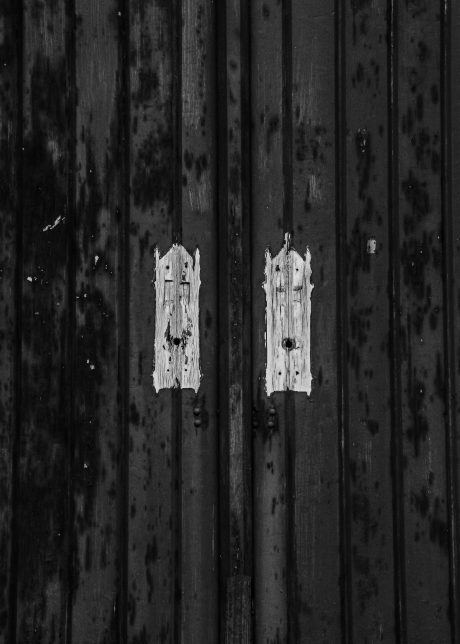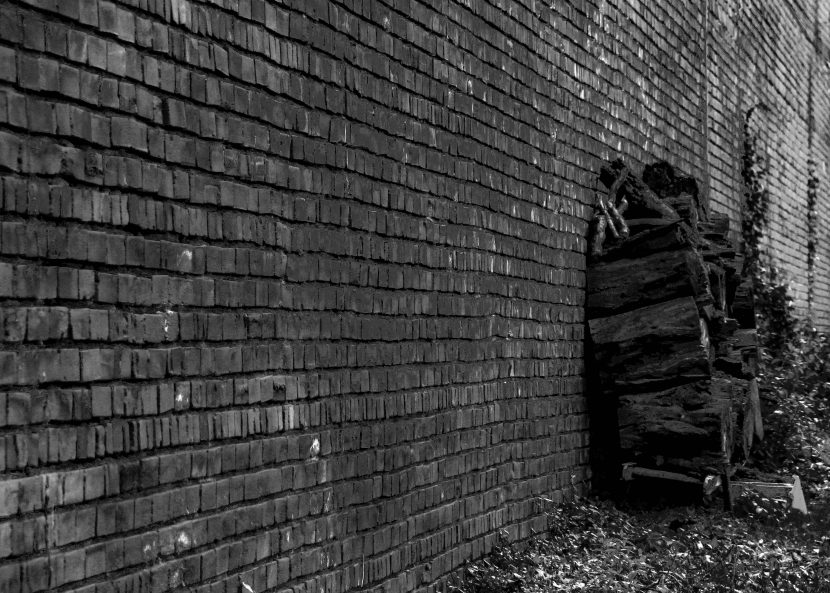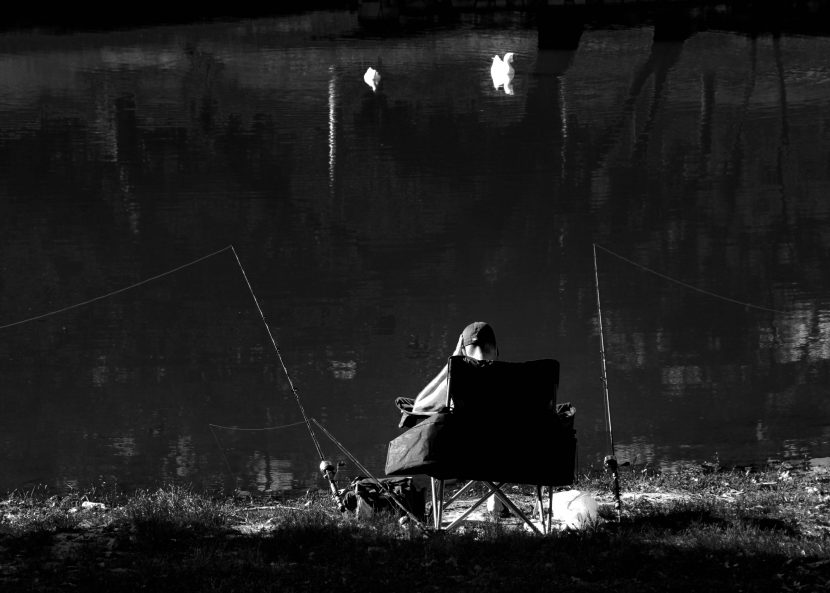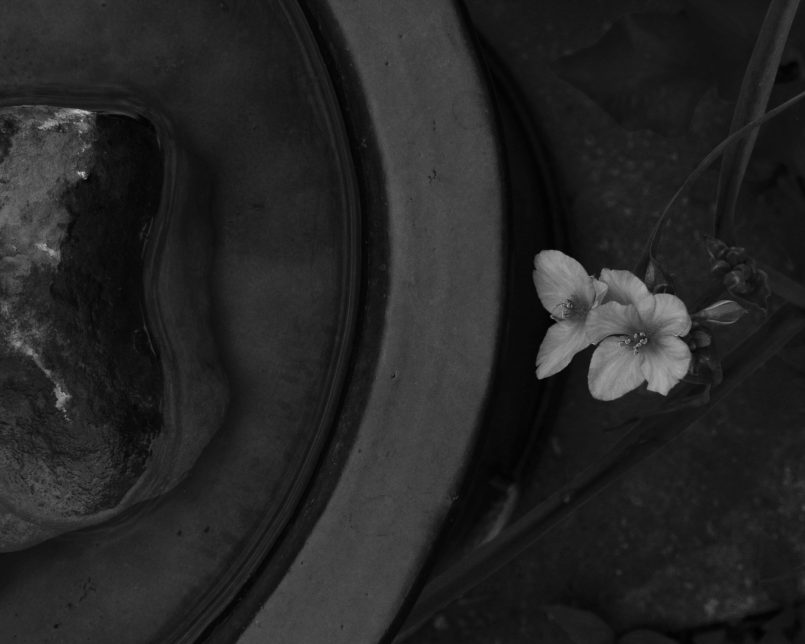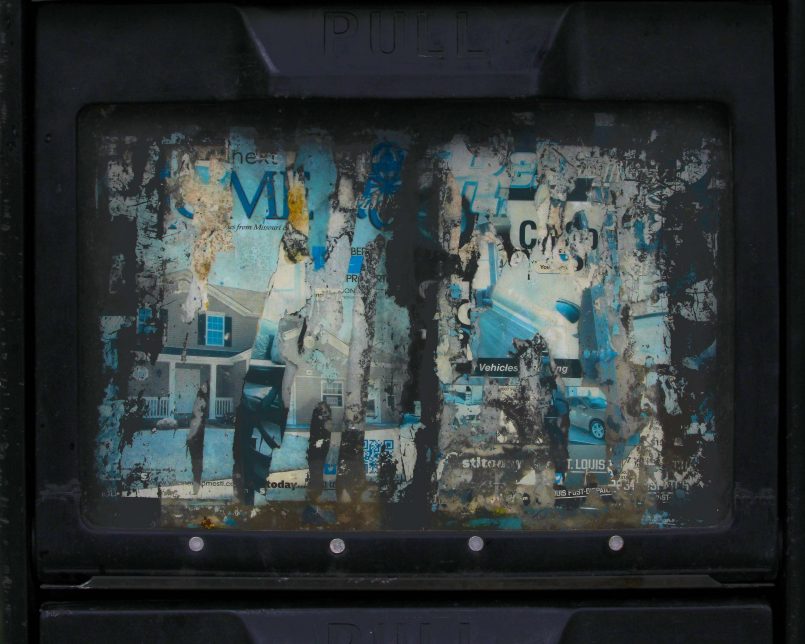Across the divide, two nations eye each other, suspicious and nervous. The problem they face is one of fundamental identity, exacerbated by a complete obfuscation of recognizable borders, because they live in each others’ back yards. There are times it seems a spark could set them at each other, breaking down doors, killing, attempting extermination.
Extreme? Sounds like any one of numerous civil war scenarios in the past half century, from the collapsed Yugoslavia to Rwanda to South Sudan. Neighbors, sometimes with intermarried families, abruptly at each others’ throats.
We take comfort in the confidence that it can’t happen here. But in fact it often does, and has, just not in the nationwide, all-vestiges-of-law-and-morality cast aside scope of some of these places. And in the past several years we have heard the rattling of sabres among groups that feel this kind of explosion of rage and all-or-nothing “readjustment” is becoming necessary. We hear talk of “second amendment solutions” and the threat of violence if an election goes counter to a certain set of expectations. Many of us probably shudder briefly and then resume our tacit reliance on law enforcement and the basic civility of our national “character” to ensure that it won’t happen.
But flare-ups, brushfire conflicts, terrorism…these things do happen and will and may become more common before we realize a solution. What do we think all these mass shootings are?
It’s easy to see them as aberrations, one-offs and outliers. Not anything to do with a legitimate issue. A “gun control” issue on the one hand, a “mental health” issue on the other. But what if they’re symptomatic of a deeper problem having to do with how people see their lives within contexts which some view as universal and others, contrariwise, see as alarming shifts in representation?
While wrestling with the symptoms, we are absorbed in the label game.
Here seems to be the basic problem: we have become two nations (maybe more) by the progressive drift of perceived representational dynamics over decades. The people who, for a simple way of identifying them, voted for Trump and support what many view with alarm as a destructive suite of anti-government policies that appear purposed to strip civil rights, are reacting primarily to what they see as their abandonment by what was once their government. All the talk about “taking America back” is not simply a rhetorical device to discredit certain policies, but expressing a genuine sense of having been cut out by the very institutions they once supported as American citizens.
The reemergence of certain symbols and organizations—the Confederate flag, the KKK, the whole concept of Originalism—baffle those of us who have viewed the social progressivism of the post WWII era as a Good Thing. The so-called Safety Net, the destruction of accommodation barriers, the gradual (and much too slow) emergence of equity consciousness, and the growing sense of self-awareness vis-a-vis our national character and its shortfalls—all these things, for many of us, are net positives. In our own lives, the sense of security, the expansion of community, and the acceptance of limits on the use of power have defined for us a maturation, something which seems so obvious as to not need defending as ideals. The use of government to achieve these things felt like an obvious means, since most other instruments of social change seemed arbitrary, with spotty records, and often a priori resistance based on tribal identities which ran counter to the larger goal. Not to mention obvious limits on effectiveness. The progress achieved, many felt, appeared so self-evidently right as to be its own justification.
We forgot certain key elements (or never knew them) and ran headlong into the wall around a completely different set of assumptions, namely those that defined community according to an unexpressed (though sometimes aggressively mischaracterized) principle of exclusivity.
One of the characteristics of what we call “Americanness” has always been an assumed tolerance. The whole Statue of Liberty aesthetic overarches what we believe is our national distinction, that we welcome anyone, that there is a basic egalitarianism we simply accept, and that here the prejudices of the past do not pertain. It’s an impossible standard, however, not so much wrong as unattainable in the face of all the other aspects of our national identity which stand against it. By that, I mean things like American Exceptionalism (which is understood, if at all, as an inbred trait rather than as a property of institutions and systems) or the rather pernicious belief in individualism as our most useful trait. These things can combine to challenge any claims that anyone from anywhere can be as “good” as we are. (This underlies and informs a peculiar expression of imperialism which manifests differently than what we consciously identify as such.)
We are tolerant as long as it seems to cost us nothing, or at least nothing we feel as part of our identity. In this we are human, like anyone else. But because we believe we are by definition more tolerant, we can be blind to instances of systemic (or personal) intolerance, often transferring the causes onto those against whom we behave intolerantly. “Its their problem if they can’t or won’t appreciate how good we’re treating them.”
(Implicit in that sentence is the essence of the problem—the exclusivity—that “we Americans” know what is good “them” and have chosen to bestow it. Some may feel this is largesse, graciousness. Those receiving it may feel it to be arrogance, especially since some of the most important things never get “bestowed”—like genuine acceptance and equality.)
Since 2016, these disconnects have emerged into the public sphere unapologetically, erupting into ideological conflict, with the whole apprehension of Government exhibiting profound rifts between groups that fundamentally misunderstand each other.
Or perhaps not. Perhaps even the assumption that there is any misunderstanding itself is a misunderstanding of what is actually happening, what we are really seeing.
Firstly, though, I think it is important to understand tolerance. In my view, tolerance is a step along the way to normalizing a relationship. We tolerate the new until a space can be made for simple acceptance. For individuals, this can be a very long time and occasionally acceptance never comes. For communities, however, a different order of processing must come into play. Tolerance is a period during which assessments must be made in order to determine the nature of what may be a new normality. Again, acceptance may never come, but what is vital is the attempt and the assessment. During this process, the community and the thing being tolerated have concomitant obligations to find that space or find a way to reform around mutually beneficial conditions of being. Special spaces may result wherein practices and behaviors might be sustained in ways that do not run counter to the community at large. (Hence, religious communities may find places within secular societies in an accommodation requiring respectful acceptance of differences from both, and certainly a degree of interaction which will naturally change both parties over time. The willingness or at least acceptance of gradual change to allow the accommodation to work better is necessary. Problems arise when an obdurate rejection of any change, on one or both sides, is experienced. Change still happens, but it likely will not be beneficial to either group.)
Too many people seem to believe tolerance simply means “putting up with something you don’t like, understand, or approve of.” In this formulation, there is no acknowledgment of the necessity to work toward accommodation. It becomes a static condition, unresolved, and therefore an irritation. Furthermore, it would appear a significant number of people feel that tolerance requires them to be “like the thing tolerated.” This, if accepted unreservedly, can lead to unresolvable tensions and eventually rejection.
This is vital to understanding where we have arrived in our current distress.
Whether morally sustainable or not, structurally we have worked under a false formulation of what Equality means. Regardless of what it says in the various declarations of rights, we are not born equal. “Created” equal may be more accurate than we usually think, although in this case it has nothing to do with theological origin stories (though they certainly, all of them, contain the germ of reality). People, in a given context, are literally “created”, i.e. made equal—by those acknowledging their status. It is a consequence of initiation. Equality, at least the kind we’re always arguing about, is a wholly political and legal state, requiring the bestowal and recognition of agency and admission as an equal according to the requirements of the community.
We daily move through the world with a base assumption that we were born into this world with a full set of naturally-bestowed rights. Any perusal of history demonstrates the falseness of that assumption. We may well argue that it should not be that way, and I would certainly be among the first to agree and argue against the desirability of the opposite view. But in the struggle to defend and expand such rights, I believe it is important to realize from whence they come and how they are secured.
And how they are reduced.
The 20th Century saw profound changes in our understanding, at a fundamental level, of what constitutes a just society. It drove us to embrace a “care and feeding” approach across communities that, to some extent, sought to dissolve previously traditional barriers between classes. During the Great Depression this was easier to do than previous eras because the catastrophe had so threatened the status quo that positive action was possible if only to forestall a revolution. It was not at all certain at the time that capitalism would survive. The collapse was global. After WWII, the changes resumed in the areas of civil rights and economic enfranchisement. It was doable then because of the unprecedented expansion of our economy, which made it seem that all these changes would actually pay for themselves and cost the comfortable almost nothing. It was easy to be magnanimous during fat times.
With the Sixties came even more progressive actions extending to the environment and declaring a war on poverty itself. Along with this, we saw an eruption of challenges to tradition, lifestyle changes, erosion of public conformism, much of it æsthetically problematic, along with a loud denunciation of the state apparatus vis-a-vís the Vietnam War, which called into question the previously unexamined givens of the responsibilities of the individual to the state when moral evaluations of specific actions are at issue.
Right here we can see the fissures forming which have led to where we now are.
The presumption currently, for some, is that a group of us have turned against their government. I think this misses an important point. I do not believe these disaffected people believe their government has simply drifted away from them. Rather, they believe there has been a coup and this is not Their Government, nor has it been for a very long time.
That shift serves to explain many otherwise baffling aspects of the current divisiveness in the country. Primarily because, if this is the case, then all those who seem so dedicated to bringing about the collapse of what the rest of us see as sound governance see themselves as patriots and our criticisms of their choices and actions would be to them the desperate holding actions of an alien polity.
For the first few decades after WWII, government could be seen to embrace a traditionalist embodiment of American values. Not until Vietnam and the Counterculture did the cracks become chasms and it was evident, at least to some, that what had once been taken as given had in fact become anathema to a different set of priorities and, indeed, aims. The people government traditionally represented—white, lower to upper middle class, essentially Christian, native-born, prone to assume what the government did was in the main for the “common” good and ought to be supported—began to separate into two broad groups: the first, those who, while still more or less holding those traditionalist views, believed in the expansion of the franchise, the modification of representational democracy to better serve previously under-represented groups, and who had gradually become less inclined to blindly trust what the government did. The second, those who had watched with growing alarm at the emergent enfranchisement of both groups and ideas that ran counter to what they viewed as “American” and became less and less enamored of the changes embraced, supported, and advocated in Washington.
In its simplest terms, the former group have come to be defined as liberal while the second, conservative. The disagreement between the diverging viewpoints quickly centered not so much on the policies in question as on the authority of government to enforce said policy. For many, it may well have begun simply over a question of who retains the authority to determine behaviors. Tolerance, even condemnation of past discriminatory policies, may have been perfectly acceptable, but not if mandated by law. On the other side, addressing these issues—which for many are matters of justice—are necessarily the proper function of government. Think segregation, fair accommodation, educational and employment equity, and so forth.
Up till 1974, both these groups, divided as they may have been over basic questions of proper governance, largely saw The Government as their government. The tug-of-war between ideologies and government responsibility has always been a normal part of our republic, and the give-and-take seen as a necessary pendulum swing in the quest for optimal policy. Conservatives and Liberals saw each other as part of the same community.
In 1974, President Richard M. Nixon resigned in disgrace rather than face impeachment, which was in the offing. This signaled the end of status quo political comity. The Right (not conservatives, but who nevertheless saw themselves as such) saw this as a coup.
Nixon was possibly the last conservative Republican president who still believed in the kind of service that defined the core of 20th Century American democracy. While he brought to bear many deeply problematic, even destructive policies, he also did many things which today would be anathema to his presumed natural base, the EPA for instance. He was, in fact, working to bypass rule of law to push his agenda and the “shadow”government he used to do end-runs around congress was the cause of his undoing, a method later used by Reagan and then, more thoroughly, by Vice President Cheney under Bush.
Given the decade just ended, however, with Vietnam and the whole parade of culturally-challenging upheavals known as the Counterculture, it must have looked to many people as if the one “decent” American who wanted to “bring us all together” had been hounded into exile by political gypsies, fellow travelers, and Leftists who lacked any regard for traditional American values. Discussion of whether or not Nixon had been framed was common up through the Nineties, and may still inform dinner-table conversations in many rightwing households today.
If, as it appeared, Nixon’s downfall was a fiendish coup to oust “decent” government and replace it with something so outside the pale as to threaten the very idea of America, then viewing this moment as the point at which Everyone’s Government became Their government serves to explain what has happened since and how support for someone like Trump can be accepted as part of a war to reclaim that government. Mitch McConnell’s defiant refusal to do anything President Obama wished to do now makes sense as another step in a conflict wherein one part of our country feels it is not being served by “that” government, and until all the liberal influences can be ousted and replaced by dependable “conservative” elements, then the war continues. Trumps “drain the swamp” rhetoric is a battlecry in this war, embraced by people who feel Washington is held by people who have wrested it from them.
The dispute over diverse issues such as trade, abortion, immigration, marriage equality, and taxes comes down to a bitter fight to retake a government which is seen as illegitimate. And in such a war it does not matter if the Other Guy has a good idea, he is first and foremost the “Other Guy, on their side.” And must be opposed—especially if he or she has a good idea. Accepting the idea would be the same as legitimizing a government viewed as “not mine.”
Those who say there is a civil war going on may be correct, but not the kind we might expect. For their part, Democrats, who for purposes of convenience (if not in fact) we can characterize as liberals, have been trying for some time to accommodate a Republican Party that has seen its ranks replaced over time by warriors in the cause of winning this war. To date, many of them have not yet realized the nature of the dispute.
We can ask on what grounds the disaffected Right has embarked on this war. There are many answers, but the one that matters most is that for too many of them, government has failed to serve. The one issue on which they may have common cause with the left is the question of who that government does serve. Too often, and for many complex reasons, it is the moneyed interests, who for their part really don’t care which side is “right” as long as they are granted freedom to manage finances as they see fit.
On the ground, however, we find ourselves back at the beginning, in a debate over tolerance—what it is and where and to whom it applies—and those who feel this is not “their” government look upon all the things they distrust and even despise as attempts to bury their way of life. Shouting at them that all this is making it difficult is not impossible to govern, while intended perhaps to make them more aware and shake them out of the grip of whatever obdurate self-centeredness we may think is possessing them, is precisely the point behind how they vote and what they wish to see enacted. Or, in many cases, repealed.
What they’re saying is “Hey, we’re the Americans here, not Them! Try governing in our behalf instead of undermining everything we believe in!”
The opinion of those who disagree with all those things just angers them more.
But it does, in fact, come down to a question of what tolerance is. Is tolerance a space wherein an opportunity for understanding to grow on both sides? Or is it merely a suspension of disapproval until someone learns to be “like us”?
It is perfectly understandable that now, when it appears that another coup has taken place and the legitimacy of government is at issue, that questions of racism and sexism, homophobia and economic justice have exploded into the public arena in ways not seen in a long time. These are the icons of tolerance. One side looked upon changes in the past with a kind of “how long do we have to put up with all this before it can return to normal?” fraying patience, while the other side pushed to make these changes not only permanent aspects of the landscape but footholds leading to further changes.
Government, in some ways, has been caught in the middle.
We will not resolve this until we recognize the nature of the divide.

